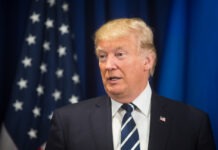Major Hollywood celebrities have issued warnings against an uptick in advanced artificial intelligence scams impersonating them. These warnings follow several incidents where victims lost significant sums to frauds that used deepfake technology to mimic the celebrities. One such instance involved a scam that used an AI-generated likeness of Brad Pitt to defraud a victim of more than three-quarters of a million dollars.
Scammers employing AI-generated images of Brad Pitt managed to swindle a French woman out of $850,000. The victim, a 53-year-old interior decorator named “Anne,” was under the impression for a year and a half that she was in communication with Pitt through fabricated social media and WhatsApp accounts. The fraudsters, impersonating Pitt and his mother, told her that the actor needed funds for kidney cancer treatment and that his bank accounts were inaccessible after being frozen by his ex-wife, Angelina Jolie. The scam was only revealed after news about Pitt’s current girlfriend came to light.
Pitt’s representative stated, “It is awful that scammers take advantage of fans’ strong connection with celebrities,” reminding fans that Pitt does not have a social media presence and urging them to disregard any unsolicited messages purporting to be from him.
Johnny Depp has also addressed the issue of AI scams, alerting his fans to the ability of scammers to duplicate his face and voice using AI technology. Depp’s warning is part of a larger celebrity response to the growing sophistication of these impersonation scams.
Tom Hanks has frequently cautioned his followers about AI impersonation scams, specifically those involving fraudulent advertisements using his likeness. Hanks has also had to warn fans about unauthorized AI-generated ads promoting supposed “miracle cures and wonder drugs” that have been appearing across various platforms.
Other prominent individuals like Gayle King and MrBeast have also started cautioning their followers about AI-generated “deepfake” content that falsely presents them endorsing products or services. The increasing difficulty of distinguishing these AI-modified images and videos from authentic content is causing growing concern about the potential for widespread fraud.
The Screen Actors Guild-American Federation of Television and Radio Artists (SAG-AFTRA) has prioritized AI protection in its negotiations with major Hollywood studios. The union is seeking to establish stringent measures to protect actors’ rights and prevent the unauthorized use of their likenesses, voices, or performances in light of the increasing threat posed by AI exploitation.
Legislative measures are also being taken. A bipartisan group of senators has introduced the NO FAKES Act, which would provide enhanced legal protections for individuals and restrict unauthorized use of their voice and likeness. The legislation aims to tackle the rapid development of AI technology that has surpassed current regulatory frameworks, offering celebrities and everyday citizens legal recourse against unauthorized AI images in the public domain.
French authorities have initiated a formal investigation into the Brad Pitt impersonation case, with the police focusing on uncovering the sophisticated network behind the scam. The victim was hospitalized and is suffering from severe depression following online harassment after the scam became public, underlining the devastating personal consequences of these frauds.
In England and Wales, the increasing prevalence of AI-generated deepfakes has led to legal amendments, especially concerning their use in pornography. The government has beefed up laws to facilitate the prosecution of those creating and distributing such content without consent, reflecting escalating international concern about AI misuse.
Law enforcement agencies have reported that these AI-driven scams represent a significant advancement in fraudulent techniques. Criminals are now utilizing advanced technology to create convincing fake profiles, messages, and deepfake videos that defy traditional verification methods. These scams often promise personal connections, VIP access, investment opportunities, or charity support, with the aim of exploiting the emotional ties between celebrities and their fans.











